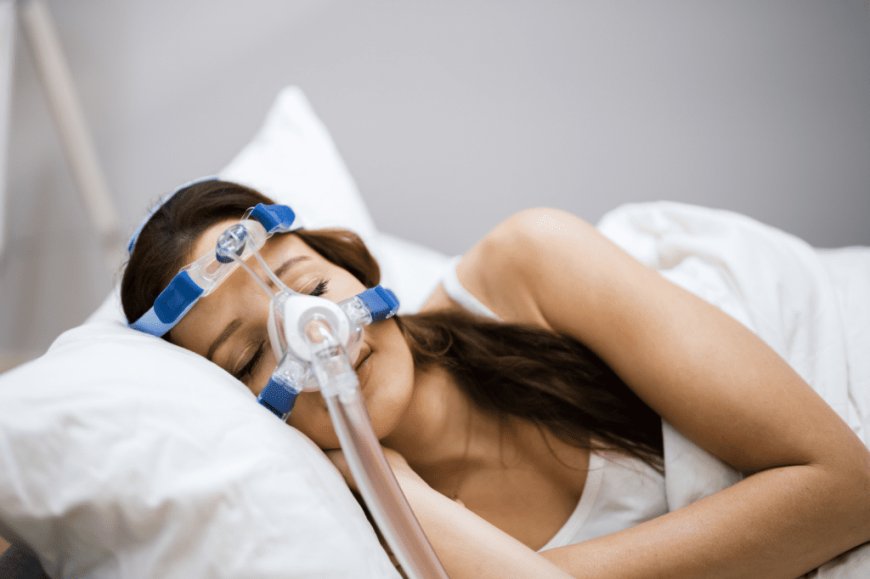Silent Struggles: The Alarming Rise of Sleep Apnea Among Young Adults
Discover the rising trend of sleep apnea among young adults, its causes, symptoms, and the urgent need for early diagnosis and treatment.

Silent Struggles: The Alarming Rise of Sleep Apnea Among Young Adults
Sleep apnea, once considered a condition predominantly affecting middle-aged and older adults, is now emerging as a growing health concern among young adults in their 20s and 30s. This silent sleep disorder, characterized by repeated interruptions in breathing during sleep, is often overlooked in younger populations. But recent studies indicate a worrying trend — one that could have serious implications for long-term health and quality of life.
What Is Sleep Apnea?
Sleep apnea is a potentially serious sleep disorder in which breathing repeatedly stops and starts. There are three main types:
-
Obstructive Sleep Apnea (OSA): Caused by a blockage of the airway, usually when the soft tissue in the back of the throat collapses during sleep.
-
Central Sleep Apnea: Occurs when the brain fails to signal the muscles to breathe.
-
Complex Sleep Apnea Syndrome: A combination of both OSA and central sleep apnea.
Among these, obstructive sleep apnea is the most common, and it is increasingly being diagnosed in young adults.
Why Is Sleep Apnea on the Rise in Young Adults?
1. Lifestyle Factors and Weight Gain
Poor diet, sedentary habits, and increasing rates of obesity among young people play a central role. Excess weight, particularly around the neck and throat area, can lead to airway obstruction during sleep.
According to the Centers for Disease Control and Prevention (CDC), the prevalence of obesity among young adults aged 20–39 years in the United States was over 40% in recent years — a major risk factor for sleep apnea.
2. High Stress and Mental Health Issues
Chronic stress, anxiety, and depression — common among young professionals and students — can disrupt sleep patterns and lead to poor sleep hygiene, exacerbating apnea symptoms. Research from Sleep Foundation highlights the correlation between mental health and sleep disorders.
3. Substance Use and Alcohol Consumption
Frequent use of alcohol and sedatives can relax throat muscles, increasing the likelihood of airway obstruction during sleep. Many young adults use these substances recreationally or to cope with stress, unknowingly increasing their risk.
4. Underdiagnosis and Misdiagnosis
Symptoms of sleep apnea — such as fatigue, difficulty concentrating, and irritability — are often dismissed as byproducts of a busy lifestyle, late nights, or mental health issues. This can delay diagnosis and treatment.
Recognizing the Symptoms
Many young adults may not realize they have sleep apnea. Key symptoms include:
-
Loud, chronic snoring
-
Pauses in breathing during sleep (often noticed by a partner)
-
Morning headaches
-
Excessive daytime sleepiness
-
Difficulty focusing
-
Mood swings and irritability
If you or someone you know experiences these symptoms, it’s important to consult a sleep specialist. Untreated sleep apnea can lead to heart problems, high blood pressure, diabetes, and even an increased risk of stroke.
Diagnosis and Treatment Options
Sleep apnea is typically diagnosed through a polysomnography (sleep study), either in a sleep lab or with a home-based test.
Common Treatments:
-
CPAP Machines: Continuous Positive Airway Pressure machines keep the airway open during sleep and are highly effective.
-
Lifestyle Modifications: Weight loss, quitting smoking, and reducing alcohol intake can significantly improve symptoms.
-
Oral Appliances: Custom-fitted devices reposition the jaw and tongue to keep the airway open.
-
Surgery: In rare cases, surgery may be necessary to remove obstructions.
For a detailed overview of treatment methods, visit this comprehensive guide by the American Academy of Sleep Medicine.
The Importance of Early Intervention
Early diagnosis can drastically improve outcomes. Young adults have the advantage of resilience and faster response to lifestyle changes and therapies. Delaying treatment, however, can lead to cumulative health risks, including metabolic disorders and cardiovascular disease.
Dr. Atul Malhotra, a renowned sleep medicine specialist, told Johns Hopkins Medicine, “Sleep apnea is not just an old man’s disease. It’s time we start screening younger patients before the damage becomes irreversible.”
Prevention Strategies for Young Adults
-
Maintain a Healthy Weight: Regular exercise and a balanced diet reduce the risk of airway obstruction.
-
Prioritize Sleep Hygiene: Avoid blue light before bed, establish consistent sleep schedules, and create a relaxing bedtime routine.
-
Limit Alcohol and Sedatives: These can interfere with natural breathing patterns during sleep.
-
Manage Stress: Meditation, therapy, and mindfulness practices can improve both mental health and sleep quality.
Real Stories: Young Adults Battling Sleep Apnea
An increasing number of young voices are bringing awareness to this issue. On platforms like SleepApnea.org and in health forums, individuals share their experiences of being misdiagnosed for years, only to find that a sleep study changed their life.
One such story comes from 27-year-old Emily from Austin, who struggled with fatigue for years before being diagnosed. “I thought I was just burning out from work. Once I started using a CPAP, it was like I was reborn.”
Final Thoughts
Sleep apnea is no longer just a condition that affects older adults. The growing number of young people affected by this disorder calls for increased awareness, early diagnosis, and proactive treatment. If you are a young adult experiencing unexplained fatigue or poor sleep quality, don’t ignore the signs. Speak to a medical professional, undergo a sleep evaluation, and take charge of your health today.
For further reading, explore the National Sleep Foundation, a valuable resource for understanding sleep disorders and wellness.
What's Your Reaction?
 Like
0
Like
0
 Dislike
0
Dislike
0
 Love
0
Love
0
 Funny
0
Funny
0
 Angry
0
Angry
0
 Sad
0
Sad
0
 Wow
0
Wow
0



















































